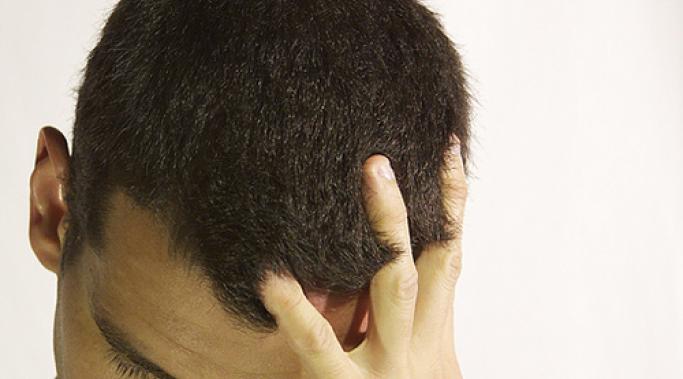Blogs
Anytime of the year is a good time to start organizing, planning and budgeting for the next 365 days. Bipolar disorder tells you not to bother - there's only bad news, there's no way to sort through the mess, and other thoughts that set you up for failure. Press past those thoughts, and gather you bills and invoices. Step by step is the way to do this.
When I think of eating disorders I think of anorexia and bulimia. I think of starvation and compulsive exercising.
When I was pregnant with my first baby, my doctor told me that she didn’t go watch a movie with her husband for two years after their first child. I thought this was absurd…until I experienced first-hand the late-night feedings, round-the-clock diaper changing, and all-around exhaustion that comes with being a new parent. Your little bundle of joy demands so much attention and care that it’s easy to neglect other areas of your life, namely your relationship with your partner.
Why is anxiety viewed as the relatively benign step-child of mental health conditions? Because if you think it's benign, I assure you it's not.
There's a tendency for people to look down on anxiety because maybe it's not the worst case scenario, or there's a bit more of a silver lining to be found - tatty though it may be.
What disturbs me the most is that with depression, they think you're weak - with anxiety, they think you're hysterical but that it's mostly harmless.
For some time now, my mental health has been declining. My partner admitted to me last night that if it were still possible to commit loved ones she would have had me hospitalized months ago. And though I didn't realize she was quite that concerned about my mental condition, she's been telling me that I'm not well for a while now. I've been unwilling to hear it, insulted by what I believed was a lack of faith in me and thoroughly annoyed at her refusal to recognize how brilliant and capable I truly am. Oh denial, my old friend, you've made me a fool once again. Sadly, I doubt it will be the last time. Because I still haven't learned to take mental health warning signs as seriously as I take my pride.
Last week, I received an email from Bob's teacher, filling me in on his first week back at school following winter break. It was about what I expected--he's been pretty hateful and nasty to his peers, unwilling to follow directions, and sneaking around in order to get his way without getting in trouble. In short, not much different than how he's been acting at home for the past couple of weeks. Once again, I ask myself the question--is it time for talk therapy?
What could be more pro-troop than supporting the right of every soldier, sailor, airman and Marine to get appropriate help quickly? PTSD, and often BPD, are physical injuries that manifest psychologically. Signing up for military service does not mean one signs away the right to heal.
As I mentioned last time, many doctors feel that antidepressants actually make bipolar disorder worse. Some specialists, in fact, will routinely take people with bipolar disorder off of antidepressants when the bipolar is doing well. Like I said, it’s a matter of perspective.
And I get asked all the time about getting off of antidepressants and other medication. So, exactly how should you get off an antidepressant and what should you worry about when doing so?
We know Dissociative Identity Disorder is a trauma disorder. In the past, many clinicians approached treatment as if it were an archeological dig, excavating for traumatic, dissociated memory. I think most people agree at this point that that's at best ineffective and at worst harmful. But the nature of dissociative memory is such that most people with DID have more questions about their histories than answers. And while I think those of us with Dissociative Identity Disorder do have to learn to tolerate some ambiguity, I also think we have more answers than we realize.
When Marvin Ross' son was diagnosed with schizophrenia, it was a relief to finally know what was wrong. Still, Marvin says the stigma of schizophrenia prevented his son from being diagnosed earlier, delaying treatment.








